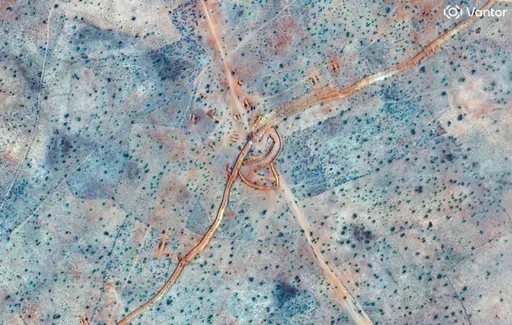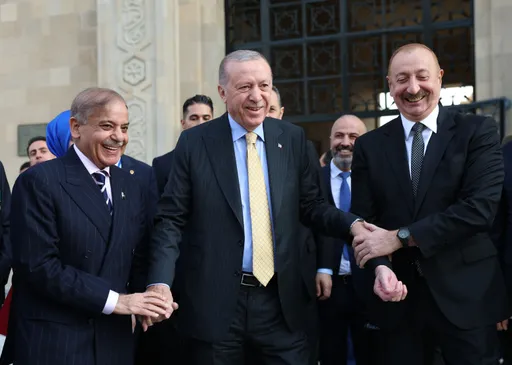A Russian pipeline to China will replace the Nord Stream 2 gas link to Europe, abandoned amid the Ukraine conflict, Moscow's Energy Minister Alexander Novak has said.
Asked in an interview with Russian television channel Rossiya-1 on Thursday if Russia would replace the European Nord Stream 2 with the Asian Power of Siberia 2, Novak said: "Yes."
Earlier in the day, the minister, on the sidelines of a visit to Uzbekistan, said Russia and China would soon sign agreements on the delivery of "50 billion cubic metres of gas" per year via the future Power 2 pipeline in Siberia.
This volume will almost represent the maximum capacity of Nord Stream 1 — 55 billion cubic metres in total — which has been shut down since September 2.
A third of Russian gas supplies to the European Union had passed through the strategic pipeline, which links Russia to Germany.
Power of Siberia 2 will fuel China's energy-guzzling economy, partly via Mongolia.
Construction is due to start in 2024.
It will therefore replace the Nord Stream 2 project, long backed by Germany but which Washington viewed dimly, and which the West has scrapped since the Russian offensive in Ukraine began in late February.
Mongolian President Ukhnaagiin Khurelsukh said he supports the construction of such projects via his landlocked country.
Speaking via a translator at a trilateral meeting with Russian President Vladimir Putin and Chinese President Xi Jinping at a summit of the Shanghai Cooperation Organisation in the Uzbek city of Samarkand, Khurelsukh backed the plans, proposing studies of their economic feasibility.
Khurelsukh said: "We also support the construction of oil and gas pipelines to supply natural gas from Russia to China through the territory of Mongolia and propose to study this issue from the viewpoint of technical and economic justification".
READ MORE: Russia 'completely stops' Nord Stream gas supplies to Germany
New transit route
Russian gas exports to the EU "will drop by around 50 billion cubic metres" in 2022, Novak said.
At the same time, the Russian minister said that Gazprom, operator of the Power of Siberia 1 gas pipeline that has linked the Chaiandina field to northeastern China since the end of 2019, would "increase its deliveries" to reach "20 billion cubic metres of gas" each year.
The linking of the Kovytka field, near Lake Baikal, to the pipeline in early 2023 will help achieve the increase.
By 2025, when it reaches its maximum capacity, the pipeline will produce 61 billion cubic metres of gas per year, more than Nord Stream 1, of which 38 billion cubic metres will go to China under a 2014 contract signed between Gazprom and its Chinese counterpart CNPC.
The two sides also signed agreements to build a new transit route from Vladivostok in Russia's Far East to northern China, bringing in an additional 10 billion cubic metres of gas, the Energy Ministry said on Thursday.
READ MORE: Russia is China's top crude oil supplier for second month in a row




























